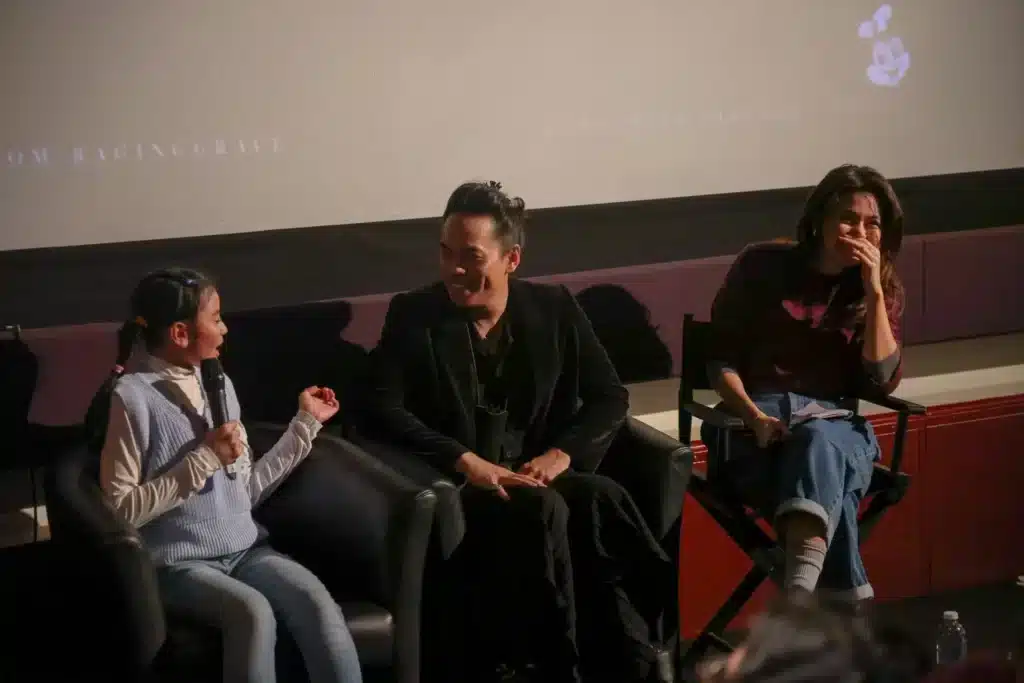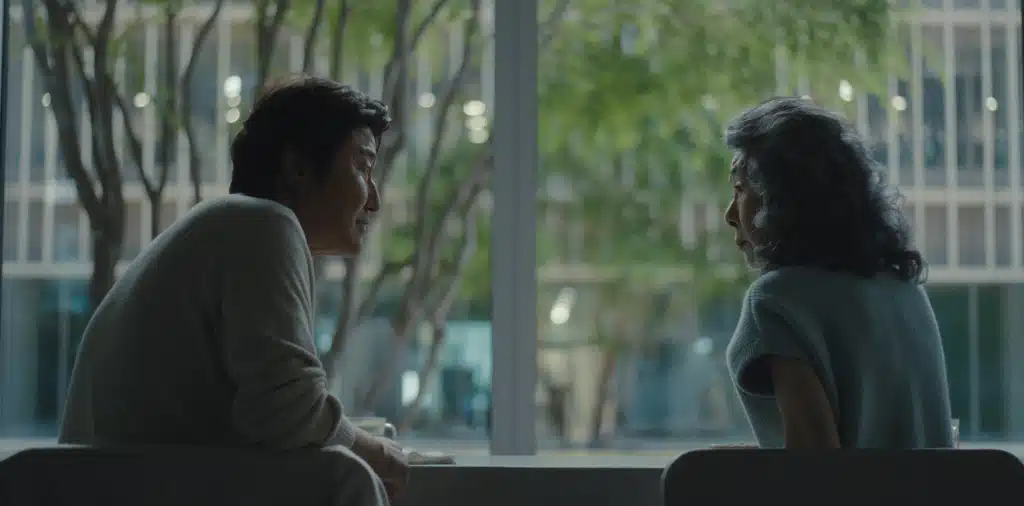Paris Zarcilla, also known as the internet’s favorite cat Dad, has directed his first full-length feature film, Raging Grace. Winner of the Narrative Feature Jury Award and Thunderbird Rising Award for Best Debut at SXSW 2, the film has garnered acclaim in the industry as well as the Asian community.
Raging Grace reflects the raw experience of an undocumented Filipina immigrant working tirelessly to secure a better life for her and her daughter and is heavily inspired by Zarcilla’s own mother’s immigrant experience.
At a private screening in London, Zarcilla was joined by Chi Thai (Raging Grace, Producer), Christopher Chow (Raging Grace, Editor), and Jaeden Paige Boadilla (Raging Grace, Actress) to discuss this film in a Q&A with Glass Onion star Jessica Henwick.


Paris Zarcilla: The government showed prejudice and had incredibly toxic rhetoric towards immigrants, who were actually helping a beleaguered, underfunded, and under-resourced National Health System. Many of these immigrants were Filipino nurses and doctors. My own mum had to come out of retirement to help out. This sparked an incandescent rage in me.
I had never felt so angry in my life, and I didn’t know where to channel it. Holding something so corrosive and heavy felt incredibly dangerous. I needed a safe space to express everything I felt, and that was the start of Raging Grace.
Initially, I never intended to make a horror film. But once my rage subsided, I began to think clearly about what I wanted to say. Immigrant stories, especially those of domestic workers and children of the diaspora, have often been horrific. Horror felt like a natural direction for the film. But it was important to me that it wasn’t just about trauma, anger, and frustration. It was about transcending those feelings to celebrate culture, find joy, and achieve healing through a cathartic spectacle.
Jessica Henwick: Your film is powerful. As the daughter of an immigrant who worked as a cleaner, I found the speech at the end particularly moving. I can feel your emotion. Chi, when did you get involved with the script?
Chi Tai: I was already working with Paris. We were going to make a short film, funded by the BFI Network. But then Paris went through what he’s describing, and the project evolved organically. He delivered a first draft just before Christmas, which was almost perfect and very close to the final film. We felt an urgency to make this film, especially given the rise in anti-Asian racism at the time. Despite being turned down by UK funders, we received funding from the US.
Jessica Henwick: Did you face pushback regarding the cultural specificity and the use of non-English dialogue?
Chi Tai: We thought we would, but our funder didn’t have issues with it. I suspect many industry people didn’t fully read the script. We stayed true to it, though we faced challenges, including being dropped by our financier during post-production.
Jessica Henwick: Christopher, how was it editing a horror film in another language?
Christopher Chow: I was drawn to the script for its drama and horror elements. Balancing my TV show work, personal family issues, and editing Raging Grace was challenging. We focused on immersing the audience in the characters’ experiences, blending jump scares with a deep empathy for the characters.
Jessica Henwick: Jaden, how did you get involved, and what was the experience like for you?
Jaeden Paige Boadilla: I initially auditioned for a short film, but then the pandemic happened. Later, I auditioned for Raging Grace. It was my first film, and I was quite young, so I didn’t fully grasp the script’s complexity. Despite the challenges and stress of auditions, I was determined and practiced every day. It was a learning experience, and I’m grateful for the opportunity.
Paris Zarcilla: Jaeden, you were incredible. Despite the complexity, you brought so much to your role. Your emotional intelligence and natural talent shone through.
Jessica Henwick: I love how complicated Grace’s character is in the film. It’s rare to see such a fully fleshed child character.
Paris Zarcilla: Yes, Joy’s character was inspired by stories my mum told me and my own experiences accompanying her to cleaning jobs. I witnessed a different side of her, one that was strict and demeaned by her boss. This had a profound effect on me and influenced the script. The nuanced aggressions and the struggle to articulate them, especially for my mother, were aspects I wanted to capture on screen.
Paris Zarcilla: Grace represents our generation, children of the diaspora, caught between two worlds. Despite striving to belong, I always felt on the periphery of society. The film explores breaking free from external constraints and oppressive societal structures.
Jessica Henwick: Have your parents seen the film? What was their reaction?
Paris Zarcilla: It took a while for my parents to understand what I do. My dad’s reaction was positive, though it took him seeing my name in a Philippine newspaper to fully appreciate my work.
Audience Member: After winning awards in the States, what’s it been like coming home with the film?
Chi Tai: The experience abroad was universally positive, but in the UK, it’s been challenging. We struggled to get programmed into the London Film Festival and faced difficulties with UK distributors and industry recognition. The contrast between international acclaim and local indifference has been stark.
Paris Zarcilla: I’m tired of trying to prove our worth in the British film industry. This film was made for our community, not for the industry gatekeepers. Our journey has shown the challenges we face in the industry, but it’s also about where we’re appreciated, which for me, is the US.
Chi Tai: We need community support. Despite our international success, we’ve faced neglect from the UK industry. We’re asking for help in promoting the film, lobbying










